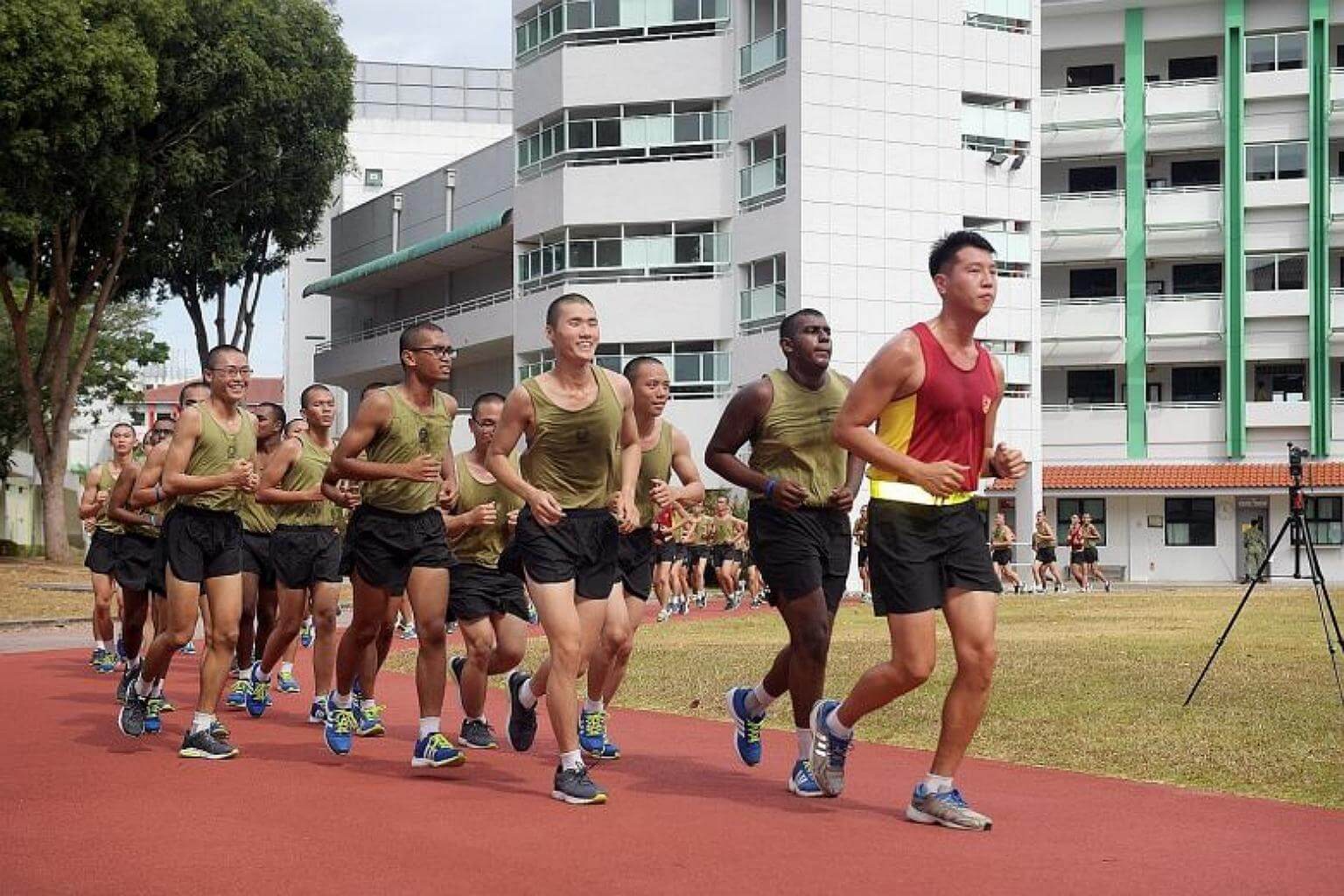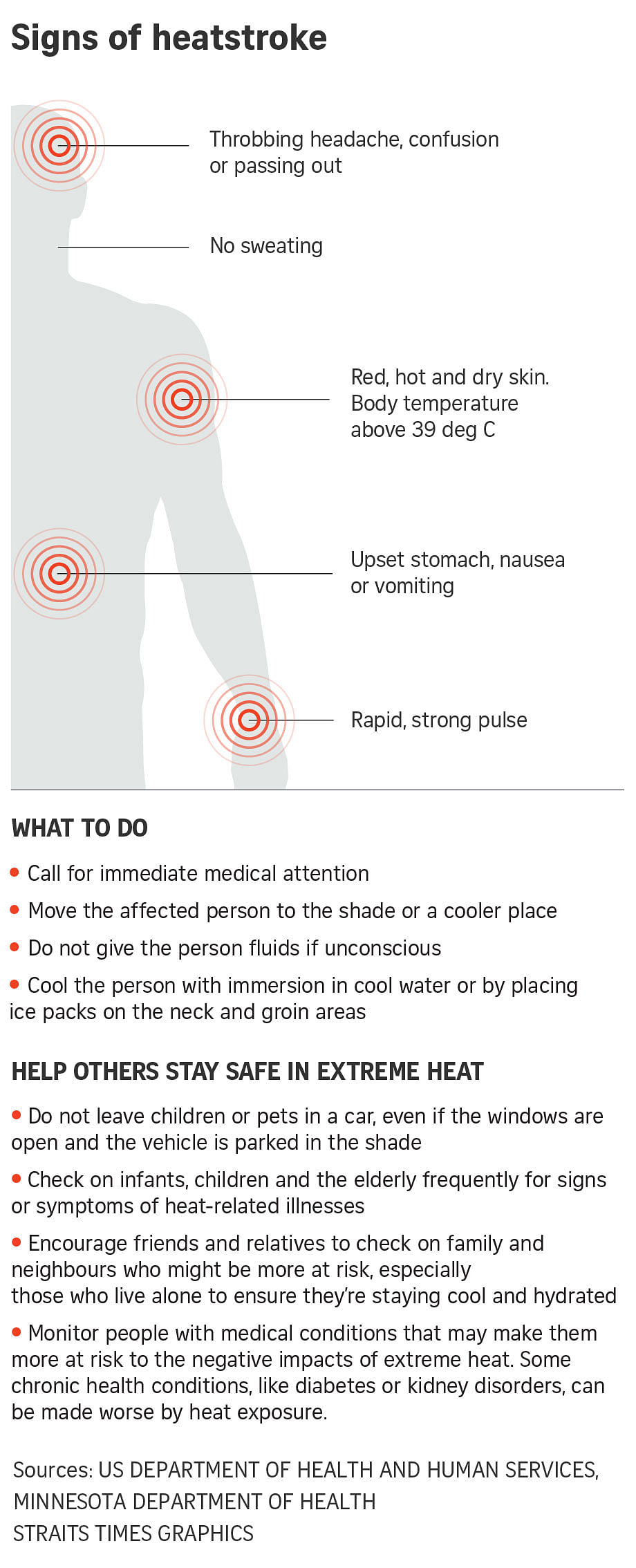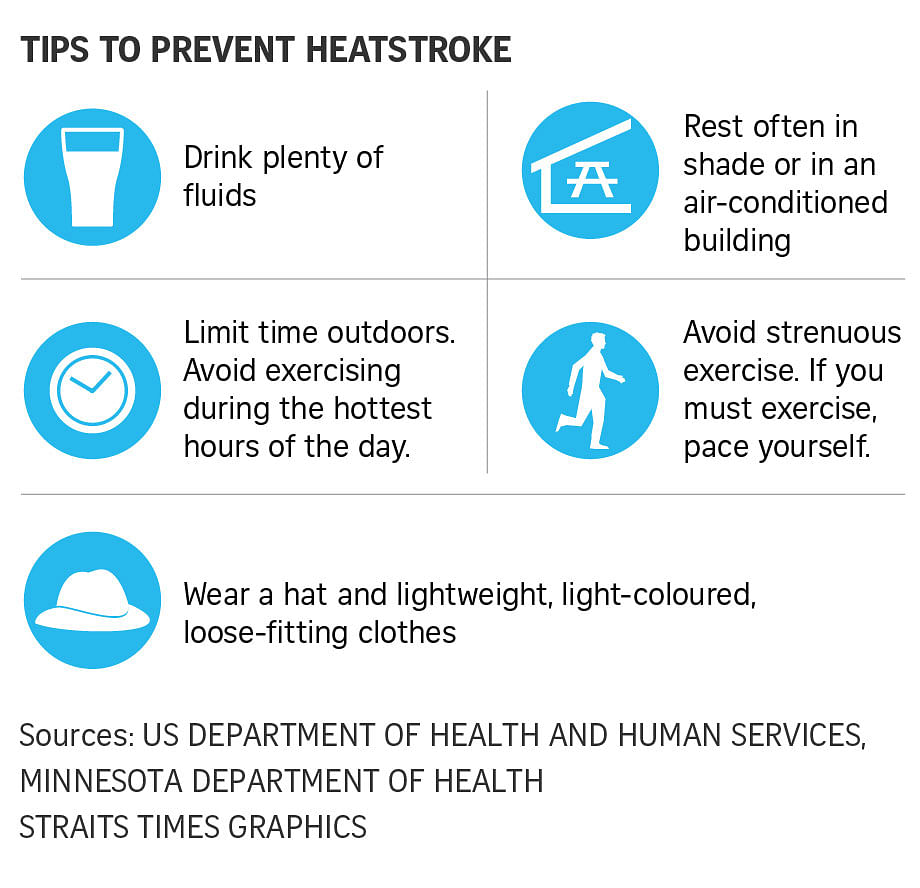NSF death after heatstroke: External panel of doctors to review SAF's strategy for heat injuries
Sign up now: Get ST's newsletters delivered to your inbox

There have been no recorded deaths from heatstrokes among soldiers in the past nine years due to a number of measures that have been put in place.
PHOTO: ST FILE
SINGAPORE - An external review panel comprising doctors in the public healthcare sector will be convened to independently review the existing strategy for heat injury prevention and management, a senior Singapore Armed Forces (SAF) commander said on Thursday night (May 3).
This is a separate track from the Committee of Inquiry (COI) that has been convened and police investigations, that could lead to a coroner's inquiry into the death of a full-time national serviceman who died on Monday after suffering a heatstroke.
In a letter to The Straits Times Forum, Brigadier-General (BG) Kenneth Liow, Commander of the Army Training and Doctrine Command, said on Thursday: "Based on these (COI) findings, the SAF will take appropriate measures to improve our overall strategy against heatstrokes to achieve zero fatalities."
There have been no recorded deaths from heatstrokes among soldiers in the past nine years, he said, due to a number of measures that have been put in place to counter heatstrokes over the years.
The measures include mandatory water parades before, during and after training, and temperature taking before training. These were also outlined in a separate SAF statement issued earlier on Thursday evening.
BG Liow gave this update in a letter addressing concerns from readers published in The Straits Times on Thursday after Corporal First Class Dave Lee Han Xuan, 19, died on Monday.
CFC Lee was warded in Changi General Hospital on April 18 for heatstroke during his training to be a Guardsman at the 1st Battalion Singapore Guards.
Preliminary investigations showed that in CFC Lee's case, heatstroke prevention measures were taken "and temperature recordings were normal prior to the activity", BG Liow said on Thursday.
"We are deeply saddened and disappointed that despite these measures, his condition did not improve, resulting in his demise," he said, adding that it will "spare no efforts in improving our systems to achieve zero fatalities".
Wearable technology to detect and prevent heat injuries have also been evaluated but as yet no suitable solutions have been found, said BG Liow.
He added: "We will continue to evaluate new ones as they appear".




